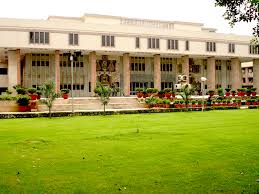-
by Admin
15 February 2026 5:35 AM



The Delhi High Court rejected the Indian Institute of Foreign Trade's (IIFT) plea against a directive from the Central Information Commissioner (CIC), which required the institute to provide comprehensive information requested under the Right to Information (RTI) Act by a former employee, Kamal Jit Chibber.
The central legal issue pertained to the IIFT's contention that the information requested by Chibber was too voluminous, claiming that compiling and providing this information would be unduly burdensome. The institute also argued that such requests add an unofficial exemption to the Right to Information (RTI) Act, which was not legislated by the Parliament.
Chibber had requested detailed information regarding the institute's financial transactions, directorial expenditures, and other administrative details over several years, which the institute failed to provide initially. Following an unsatisfactory response to his first RTI application and subsequent appeals, the matter escalated to the CIC, which directed IIFT to comply with the request, emphasizing the importance of transparency as envisaged by the RTI Act.
Justice Subramonium Prasad meticulously addressed each point raised by IIFT, rejecting the notion that the voluminous nature of information could serve as a barrier to the right to information. The court held that:
The information sought by Chibber does not fall under any exemptions specified in Section 8 of the RTI Act, which include issues like sovereignty, integrity of India, or breach of parliamentary privilege, among others.
Denying information on the grounds of volume would effectively add an unauthorized exemption to the RTI Act, which is not permissible.
The court underscored the lack of overlap in the questions posed in different RTI applications by Chibber, dismissing IIFT's claim of repetitive requests.
Decision: The court upheld the CIC’s order, directing IIFT to provide the requested information and dismissing the institute’s arguments against the RTI application's scope and nature. The writ petition was dismissed, reaffirming the right to information as a fundamental tool for ensuring accountability in public institutions.
Date of Decision: April 26, 2024
Indian Institute of Foreign Trade vs. Kamal Jit Chibber
